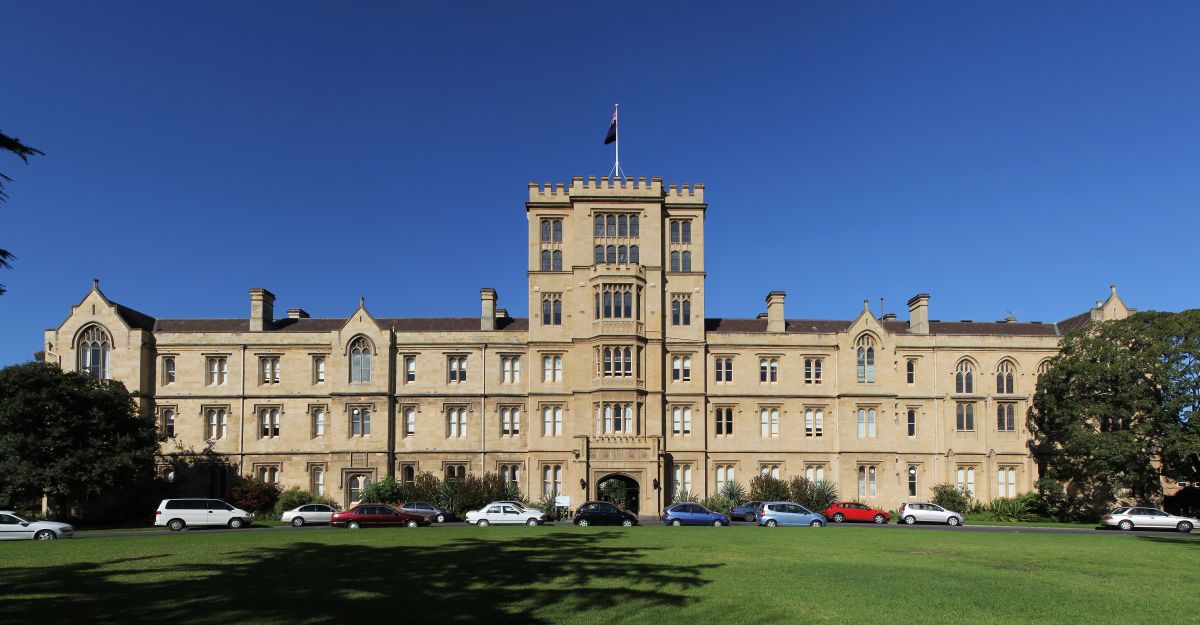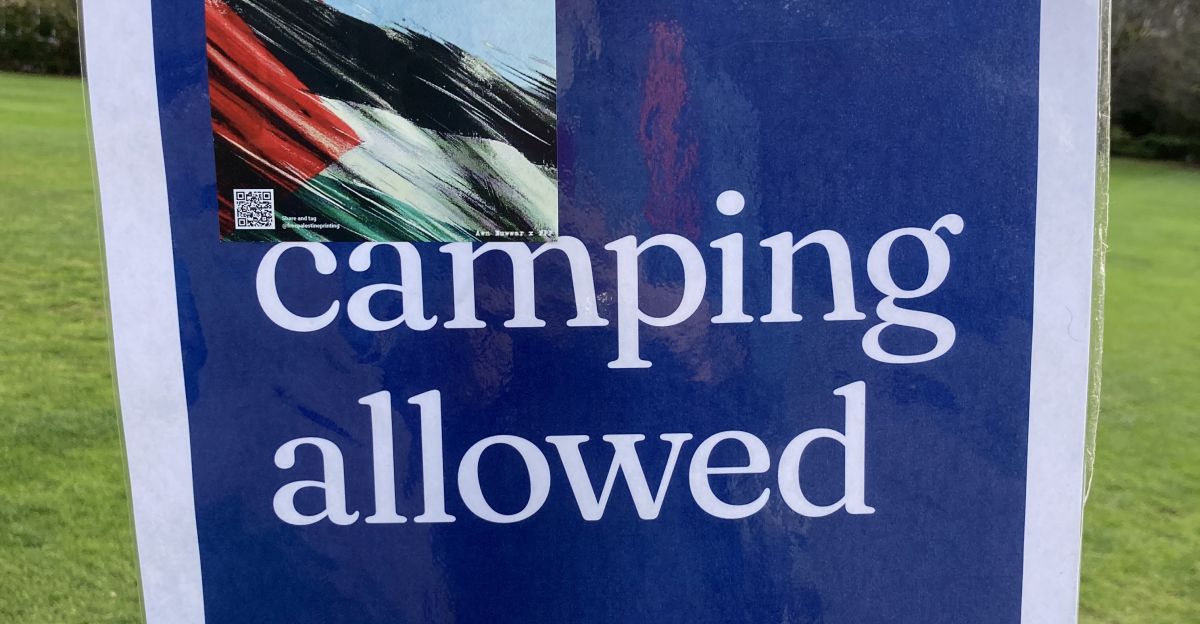This essay was written after extensive discussion with colleagues and dear friends. It is written by one person of Arab background and in dialogue with Arab and Palestinian people, and thus reflects the thoughts of a broader group. In light of the threats issued to many of us for our Palestinian advocacy in the public domain, in the leaked WhatsApp chat thread, and to our employers, we decided it was necessary not to mention our names. This might be the first of many pieces reflecting on how we will write differently following this genocide. Perhaps next time omitting our names will not be necessary.
Since October 7 my friends and I, all of us writers and creatives, cannot stop talking about Palestine. I do not think we have talked about much else. As writers working in academia and the cultural arts, many of us recently agreed that the act of writing itself seemed to have changed. We agreed that all our writing after October 7 would be transformed, irreversibly altered from what we had produced prior to the carnage we are witnessing in Gaza.
While I recognised the truth of this, I did not know what it meant, except that for some months I have been walking through my little world with a sense of foreboding so deep that every part of me aches. Of course, I am stricken by the relentless images of shredded and maimed Palestinian bodies, of destroyed cultural heritage sites and decimated infrastructure. But something of this pain is specifically related to writing.
Like my friends, I’m a strong advocate for coexistence in all countries. I’ve always leant toward coexistence between communities, religious, ethnic and otherwise. In relation to the Arab world, and especially places like Palestine, that coexistence was once a lived reality. My support for coexistence in Palestine is based on historical precedent rather than some utopian plan.
Palestine, like much of the Arab region, was historically a bustling site of plurality and coexistence. It was not a perfect era, and not one I seek to romanticise. During that period the Arab world fell under Ottoman rule, where hierarchies between Ottoman subjects existed and discontent from Arab communities was fomenting even as the Ottoman central authority attempted to move away from its hierarchical system. How ever imperfect this living arrangement, described by Ussama Makdisi as one organised by an “ecumenical frame”, it nevertheless provides the trace of a model for a free modern-day Palestine.
A significant challenge to that ecumenical frame was launched in the late nineteenth century, in Europe, rather than the Arab world. As the Ottomans were engaging in reforms to address inequality within the empire, and as Arabs were developing different forms of inclusive nationalism (Arab nationalism being the most predominate), European Zionists were giving shape to the idea of an exclusionary ethnoreligious nation state. This species of nationalism was gravely mismatched to a longstanding multireligious and multicultural region. It was premised on the non-existence of the native Palestinian population. As the history books show, from Ilan Pappe (The Ethnic Cleansing of Palestine), Ussama Makdisi (Age of Coexistence) and Avi Shlaim (The Politics of Partition), the arrival and ultimate triumph in 1948 of this kind of nation state — largely sanctioned by the West — was the end of that coexistence.
What followed was the systematic displacement of Palestinians and the consolidation of that ethnoreligious state first imagined in Europe, perhaps most emblematically by Theodor Herzl. Palestinians have termed their initial displacement in 1948 the Nakba, but — as the historian Patrick Wolfe describes in relation to various forms of settler colonialism — the catastrophe is a structure, not an event. The Nakba did not end in 1948; it continues to unfold in the recurrent brutalities in Gaza and the West Bank, and it is what we witness right now with Israel’s violence in Gaza.
Even today, 76 years after 1948, the memory and record of that multireligious and plural world stands as the historical precedent of a peaceful and coexistent Palestine. It has been treated as such by many eminent Jewish and Palestinian historians, social theorists and literary critics working to build an equitable and inclusive future — a single nation with equal civil rights for all.
If this kind of Palestine did not yet exist, we — my friends and I — could picture it; we could envision what could be possible with Palestine’s liberation. But that world is now, tragically, unthinkable. It has been fatally wounded by the IDF, by Israel’s current leadership and by Israel’s Jewish population. Despite reports to the contrary, we had not realised until this carnage started just how hated, how maligned and how dehumanised Palestinians and Arabs are in the eyes of most Israelis. The majority of Israelis support Palestinians’ forced displacement from Gaza, and even support an escalation of militarism in Gaza.
Footage posted on social media shows IDF soldiers celebrating as they destroy buildings, as they decimate whole residential areas, and as they ruthlessly kill Palestinian civilians. Other footage depicts Israelis mocking Palestinian and Arab cultural practices, posting videos parodying grieving Palestinian mothers, along with other debased caricatures of suffering or starving Palestinians. The degree of the hatred the occupier has for the occupied community, one that refuses to end its resistance even after 76 years of subjugation, has been a brutal revelation.
This despair will no doubt impact our writing personally, but the moral landscape of argument has also altered. We work in universities and cultural arts industries. Our professional environments are filled with people who make it their business to be aware of what is happening in the world. Since 2005 Israel has escalated its aggression against Gaza, with routine attacks against its inhabitants with ever-increasing death tolls. In the West Bank, illegal settlements and settler violence have exponentially increased. We all recognise the experience of attempting to discuss these injustices with our well-informed colleagues, only for our interlocutors to acknowledge, but qualify and relativise, these moral facts. Israel’s violations could only be addressed in tempered terms. When pressed, it became clear that however flagrant Israel’s actions were, our colleagues could not straightforwardly condemn them for fear of being branded as antisemites. War crimes, assassinations, massacres, could only ever be criticised in “balanced” and “careful” terms.
No matter how frustrating these conversations were, I would walk away from them believing that if Israel unleashed its full fury against Palestinian civilians — as it now has, even to the point of a plausible genocide, as the International Court of Justice (ICJ) has affirmed — our well-meaning colleagues would abandon that rhetorical shield of balance to stand in solidarity with Palestine, with humanity. After all, they believe in women’s rights, in fighting for climate justice, they supported an Indigenous Voice to Parliament and they campaigned for marriage equality. Many of them are literate in and are paid to teach foundational decolonial texts written by Frantz Fanon or Edward Said that expose conceptual intellectual groundwork for the politics of racism, oppression and gender discrimination. Genocide is the “crime of crimes”, and one they would argue should be prevented at all costs. Yet in the face of the ICJ’s provisional measures which support the Palestinian characterisation of what is unfolding, these interlocutors, so impressed by factuality and balance, have not altered their practice of being “careful” in conversations about Palestine. It is as if the ICJ ruling, growing calls from Western states for ceasefire and reports from humanitarian organisations highlighting the devastation and indeed starvation of Palestinians, do not affirm the dire risk to all Palestinian life in Gaza.
Israel has been murdering Palestinian civilians en masse for over eight months. The horrors of their deaths, their wilful starvation and annihilation, have persisted unabated. Some of our colleagues have transformed their social media pages to talk about Palestine, have turned up to dozens of protests or have reached out to check in on us. We are grateful to them. But many of the well-intended and well-informed have not altered their stance or demonstrated their solidarity because they do not seem to share our belief in that moral limit to violence, and that attendant moral imperative to speak the truth. It is not hyperbole to say we are grieving as we watch our kin annihilated on an hourly basis. Every day is the worst day. There has been no reprieve for us since October 7.
We feel neglected, betrayed and discarded. We have always stood in solidarity with the causes these colleagues are most passionate about because those causes are ours too. Why isn’t Palestine their cause? We know being pro-Palestinian isn’t fashionable in centres of power. But if not now, when? What will it take for those colleagues to speak out, or at least reach out and lend unequivocal support to Palestinians and Arabs? We don’t have time to wait for Palestine to become a “safe” cause to support. The time is now.
In the past we’ve often written with the liberal sensibilities of our colleagues in the back of our minds, hoping that our work might convince them to step up. We have paid attention to the words and language we use, the arguments we craft and the examples we marshal to ensure we make the strongest impact without risking offense. We can no longer do this as it is now clear that our conversations with them were never really in good faith.
I believe in time I will find my way back to my belief in coexistence. I will keep honing my skills and critical thinking to find new and better ways to articulate the necessity of pluralism. But what I won’t ever get over is the sense of betrayal from colleagues. The abandonment is too great, too hypocritical, too damaging. This is the consensus my friends and I have reached in our endless discussions.
My friends and I do not have a clear sense of what our writing will look like in the aftermath of October 7. What we hope is that we will be bolder in our creativity and, as a result, stronger and better advocates for Palestinian liberation. Our goal is for the world to recognise, including our liberal colleagues and beyond, that Palestinians not only have a right to life, but that they want to live with dignity and respect, with a recognition of their humanity.



